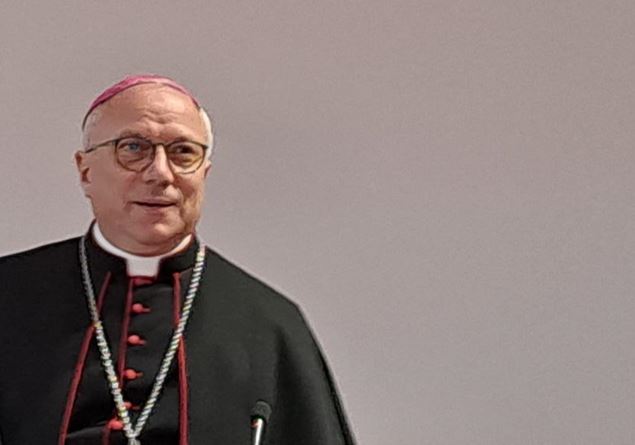It is a reaction of “regret” that of Monsignor Giuseppe Baturi, archbishop of Cagliari and secretary general of the CEI, before the law on the end of life approved by the Sardinia Region, second in Italy after Tuscany.
«There are many problems of this land on health, I’m sorry an acceleration on such an important theme. He risks bringing the theme of life and death within an exaggerated and not adequately motivated political dialectic. The fundamental point is that, rather than helping suicide, the public body must activate as much as possible to support the dignity of living up to the last moment, providing for palliative care, to help families, to activate those necessary plans because every moment of a person’s life is sustainable “.
In Sardinia only 5 percent of the population accesses palliative care.
“In Sardinia there is no territorial plan for palliative care. The starting point for access to suicide should be unbearable pain, but the problem is that we cannot stop to evaluate the unbearability of pain, we must activate to alleviate it. The level of civilization of society depends on this. The pain becomes unbearable not only for obviously biological issues, but also for a spiritual and emotional perspective of lack of company, support, solitude. That’s why, the so -called total pain, which makes it impossible to think about the future with hope, should be faced with a total cure of the
person”.
What do you mean to the person’s total care?
«It means providing for the assistance of the person, even if he cannot heal, to alleviate his suffering and make his closeness to death more dignity. Allow home care as much as possible because it is within “hot” emotional relationships that you can also bear this moment of pain. Support families because they find them very often in the face of serious situations. Here, the total cure in my opinion means taking care of the entire person who approaches death, thinking that – that moment too – has a value, can have a value. That that moment wonders the whole society to make up for it and yes
help ».
Basically is there the idea that we cannot decide in life even in the most serious situations?
“Stating the existence of a right to death to which the public body must provide means introducing something serious, ethically unacceptable, but also dangerous. First of all because a message is given to the sick, especially to the most serious, of the possibility of choosing death and ending life. Self -determination cannot go to there. It is a power that has to do with life, that must be kept and escapes every ideology. Makes you shiver think tomorrow that those who have power can decide which lives have value, which must be experienced and which are not. We have to mobilize why life is dignified, every fragment of life. Remove value from life to cracks the foundations of our society ».
There is a part of the Catholic world, however, who asks to collaborate in the writing of a law on the end of life.
«Taking into the act of these initiatives that multiply, of those of the jurisprudence and the Constitutional Court and without denying the right to life, there are initiatives in favor of a law but at national level. The regional and local laws are inadequate before themes too important to be left to ephemeral majorities of individual territories. We have had the opportunity to say the importance of a national reference as long as it is at the beginning that life must be kept, accompanied and safeguarded and to prevent greater evils. This can have a value if the purpose is to contain initiatives that otherwise would be even more serious ».
So you are not contrary to a law as long as that law moves in the name of the dignity of life?
“The important thing is to avoid fragmentary and non -respectful initiatives, and to predict the extension of palliative care and all other measures useful to give dignity to living even at that moment”.
What is the role of the Christian community?
«It is as central as that of the social community. In addition to affirming the moral legitimacy of giving death and regret for certain legislative initiatives, we must reiterate our will to be next to the sick, with solidarity, friendship and company towards them and towards their families, not only in hospitals, in the hosts, but also in the homes of our parishes. So, as Christians, when we judge the laws in a certain way and evidently affirm the right to life, at the same time we must ourselves protect life through an intelligent and faithful company “.


